Indigenous Governance Database
Presentations
Joseph P. Kalt: Sovereign Immunity: Walking the Walk of a Sovereign Nation
Harvard Project on American Indian Economic Development Co-Director Joseph Kalt discusses what sovereign immunity is and what it means to waive it, and share some smart strategies that real governments and nations use to waive sovereign immunity for the purposes of facilitating community and…
Honoring Nations: Joseph P. Kalt: Rebuilding Healthy Nations
Harvard Project Co-Director Joseph P. Kalt provides a general overview of the Honoring Nations program and illustrates how people all over the world are learning from the nation-building examples set and the lessons offered by Native nations in the United States.
Honoring Nations: Oren Lyons: Rebuilding Healthy Nations
Onondaga Chief and Faithkeeper Oren Lyons urges Native nations to continue sharing their stories of success, learning from each other, and working towards creating a better future for the next seven generations.
Honoring Nations: Floyd "Buck" Jourdain: Sovereignty Today
Red Lake Band of Chippewa Former Chairman Floyd "Buck" Jourdain defines sovereignty as the aggressive and proactive exercise of a nation's sovereign powers, and illustrates how his nation takes this approach in advancing its own priorities and dealing with other sovereign governments.
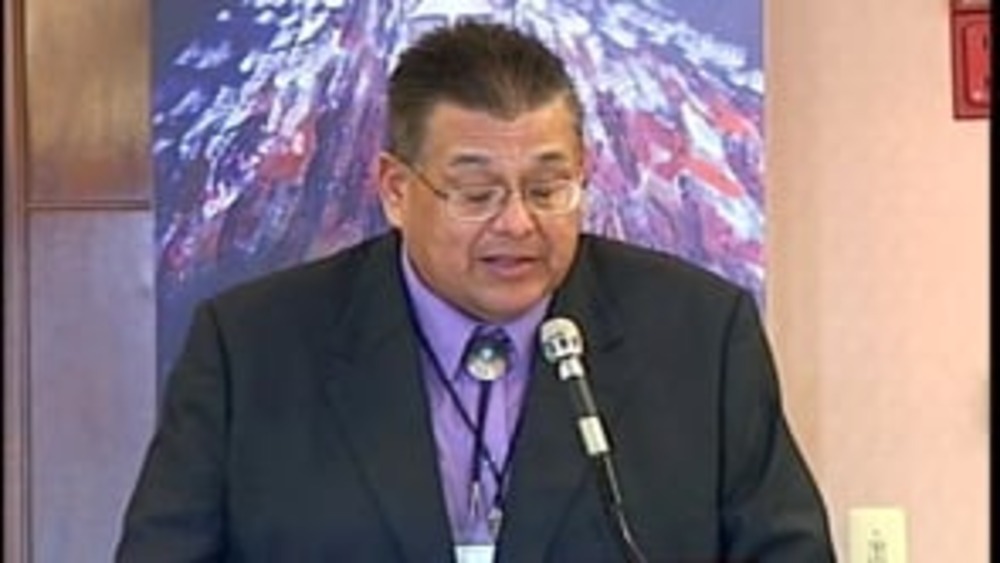
Honoring Nations: Allen Pemberton: The Red Lake Walleye Recovery Project
Red Lake Chippewa Natural Resources Director Allen Pemberton provides an overview of the Honoring Nations award-winning Red Lake Walleye Recovery Project, and illustrates how the program reflects the benefits of Native nations taking over control of their own affairs from the federal government.
Honoring Nations: Jon Waterhouse and Rob Rosenfeld: The Yukon River Inter-Tribal Watershed Council
Jon Waterhouse and Rob Rosenfeld provide an overview of the work accomplished by the Yukon River Inter-Tribal Watershed Council, demonstrating the benefits of Native nations who have common cultures and challenges to band together to solve issues of mutual concern.
Honoring Nations: Hilda Faye Nickey: The Mississippi Choctaw Tribal Court System
Mississippi Choctaw Chief Justice Hilda Faye Nickey discusses the Choctaw tribal court system, and provides an overview of Choctaw's youth court and how it works to educate Choctaw youth about Choctaw ethics and core values in order to set them on the right path.
Honoring Nations: Joseph Singer: Sovereignty Today
Harvard Professor Joseph Singer makes a compelling case that Native nations' best defense of sovereignty is their effective exercise of it, and stresses the importance of educating the general public -- particularly young people -- about what tribal sovereignty is and means.
Honoring Nations: Michael Thomas: Sovereignty Today
Former Mashantucket Pequot Chairman Michael Thomas provides his definition of what tribal sovereignty means in the 21st century, and stresses the importance of Native nations examining and reconnecting with their traditional governance principles as they work to exercise sovereignty effectively.
Jaime Pinkham: Intergovernmental and Intertribal Relations: Walking the Sovereignty Walk
Jaime Pinkham discusses why the building of productive intergovernmental and intertribal relationships is so important, and shows how they can advance the nation-building efforts of Native nations. He shares a number of in-depth case-study examples illustrating how Native nations have engaged in…
Regis Pecos: The Why of Making and Remaking Governing Systems
Former Cochiti Pueblo Governor Regis Pecos shares his thoughts about the ultimate purpose of constitutions, governments and governance from a Pueblo perspective, and argues that constitutional reform presents Native nations with a precious opportunity to reclaim and reinvigorate their cultures and…
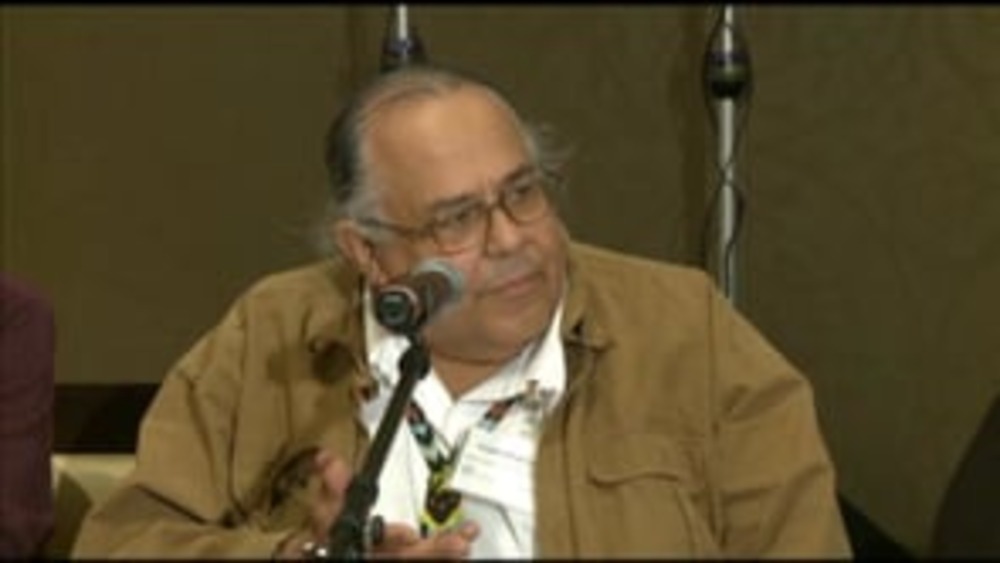
Constitutional Reform: A Wrap-Up Discussion (Q&A)
NNI "Tribal Constitutions" seminar presenters, panelists and participants Robert Breaker, Julia Coates, Frank Ettawageshik, Miriam Jorgensen, Gwen Phillips, Ian Record, Melissa L. Tatum and Joan Timeche field questions from the audience about separations of powers, citizenship, blood quantum and…
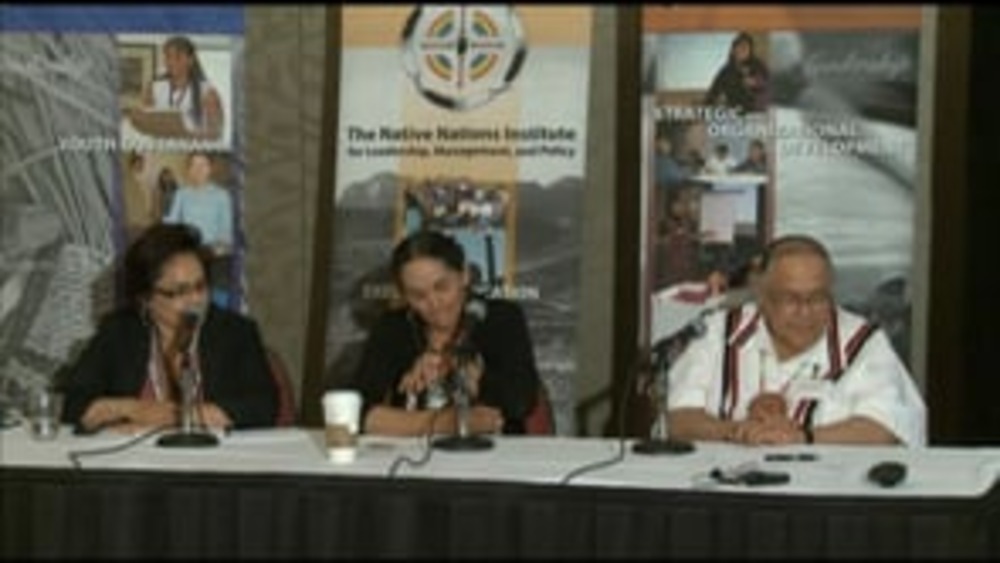
Frank Ettawageshik and Gwen Phillips: Reforming Our Nations' Constitutions: What We Did and Why (Q&A)
Frank Ettawageshik, former Chairman of the Little Traverse Bay Bands of Odawa Indians, and Gwen Phillips, Ktunaxa Nation Director of Corporate Services and Governance Transition, field questions from the audience about their presentations detailing how their nations either reformed or are in…
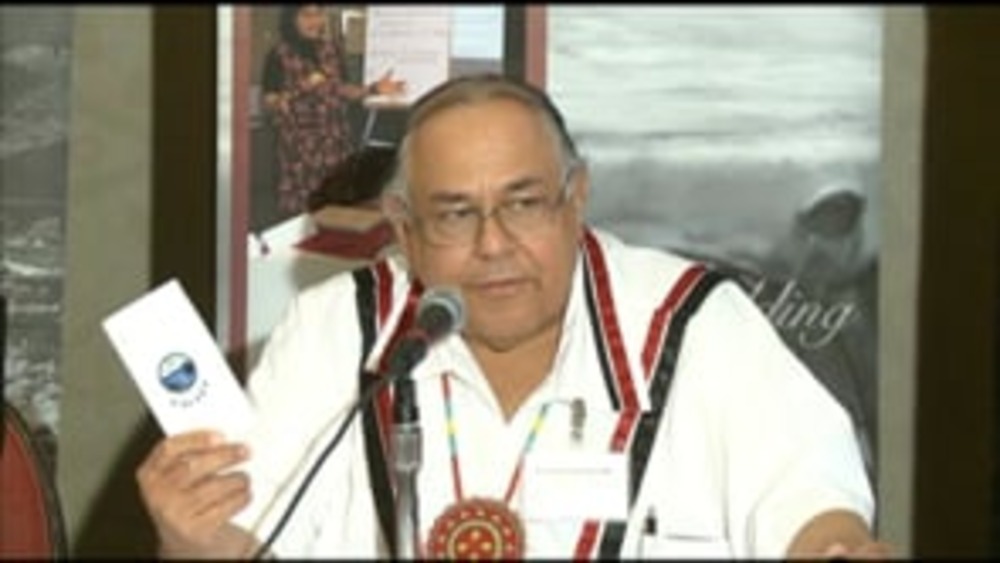
Frank Ettawageshik: Reforming the Little Traverse Bay Bands of Odawa Constitution: What We Did and Why
Frank Ettawageshik, Former Chairman of the Little Traverse Bay Bands of Odawa Indians (LTBBO), discusses how LTBBO came to develop a new constitution and system of government, the key components of the LTBBO constitution, and how the new LTBBO constitution differs in fundamental ways from the old…
Todd Hembree: A Key Constitutional Issue: Separations of Powers (Q&A)
Cherokee Nation Attorney General fields questions about the critical role of separations of powers in effective Native nation governance and how the Cherokee Nation instituted an array of separations of powers in the development of their new constitution
Julia Coates: The Process of Constitutional Reform: What the Cherokee Nation Did and Why
Cherokee Nation Councilor Julia Coates presents an overview of the constitutional history of the Cherokee Nation, and chronicles the process the Cherokee Nation followed to reform its constitution in 1999.
Todd Hembree: A Key Constitutional Issue: Separations of Powers
Cherokee Nation Attorney General Todd Hembree discusses the critical role of separations of powers in effective Native nation governance, and provides an overview of how the Cherokee Nation instituted an array of separations of powers in the development of their new constitution, which was ratified…
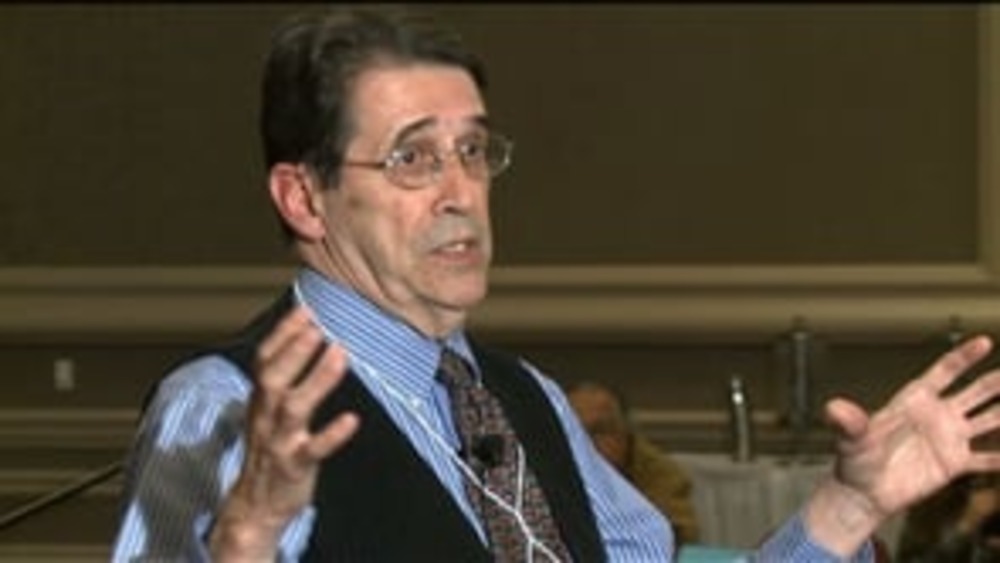
Frank Pommersheim: A Key Constitutional Issue: Dispute Resolution
University of South Dakota Professor of Law Frank Pommersheim discusses the key constitutional issue of dispute resolution and presents three cases demonstrating how tribes are endowing their constitutions with legitimacy through the careful, thoughtful resolution of disputes.
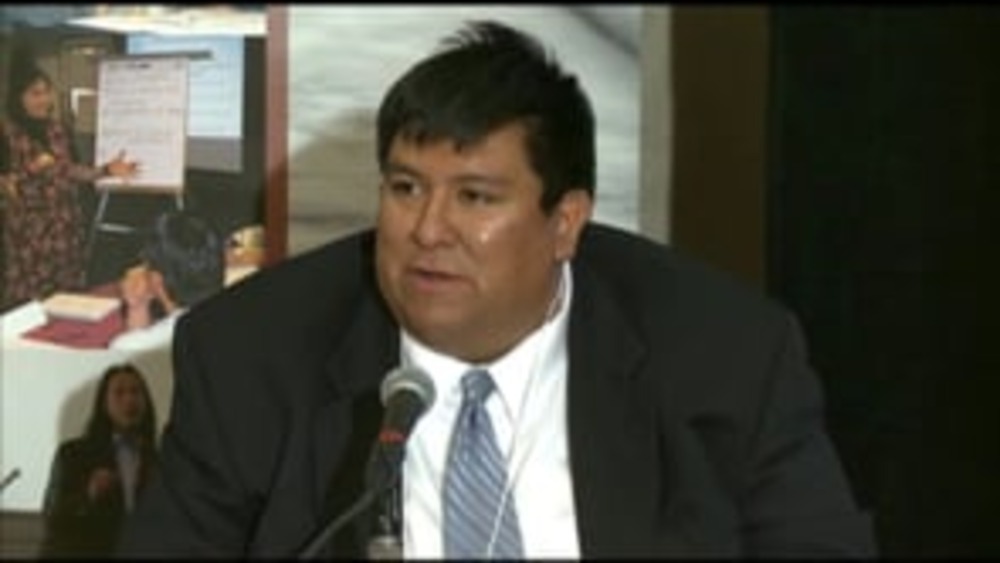
Anthony Hill: The Process of Constitutional Reform: What Gila River Indian Community Did and Why
Formerly the Chairman of the Gila River Tribal Constitution Task Force, Anthony Hill describes the process that the Gila River Indian Community has engaged in as it undertakes reforming its constitution and system of government. Hill also offers some tips and strategies other Native nations should…
Joan Timeche and Joseph P. Kalt: The Process of Constitutional Reform: Key Issues and Cases to Consider
Joan Timeche and Joseph P. Kalt share two stories of constitutional reform processes undertaken by Native nations and discuss what factors spurred or impeded the ultimate success of those efforts.
Pagination
- First page
- …
- 15
- 16
- 17
- …
- Last page
